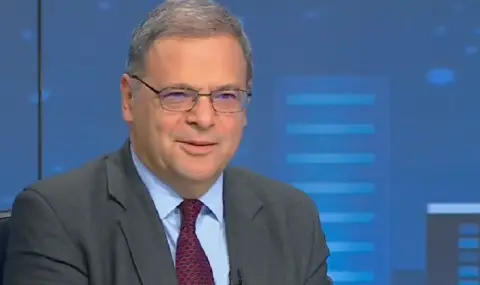Closing of coal plants is not administrative, but market, they cannot survive on the market, they are not competitive.
This is what Yulian Popov, former Minister of Environment and Water in the government of Nikolay Denkov and before that in the office of Marin Raykov, told the BNR.
"Coal plants are dying everywhere in Europe. There are rare cases of a coal plant being activated, say in Germany, for a few months, but that is very rare. The general trend is a sharp decline. Britain has completely withdrawn from coal. In 8 years, Britain went from 40% coal power to 0 without a single earthquake in the country. It's just that the process was manageable".
According to him, in recent years it has not been frankly and clearly explained to people "what is absolutely inevitable, which is the closing of the coal plants, even if there is a plan for alternatives".
CHPs are not competitive because of the price of carbon emissions, which is not related to the Green Deal, but is an older European and global policy, and because of the low prices of renewable energy (RES).
strong>
"The carbon neutrality card has no binding force. The fact that it has not been passed in Parliament only means that we have not fulfilled some commitment to the Recovery and Resilience Plan that we have made ourselves. We do not fulfill a contractual obligation that we have proposed ourselves. Bad communication, pre-election populism means that yes, we can lose money. But the worse thing is that we are delaying the whole process of (energy) transition", commented Popov.
We won't lose all the money on PVU, he thinks.
In the show "Sunday 150" Yulian Popov commented that Ursula von der Leyen's statements were that there should be no deviations from the main goals of the Green Deal:
"Mario Draghi's report, which has become almost the economic strategy of Europe, does exactly that to a very large extent. It focuses on Europe's competitiveness, and at its foundations lie the new technologies that are a major part of the Green Deal. There is no backing down from the goals. What we are seeing is new words - like competitiveness, but we will not see a change in the political position on the Green Deal."
Popov stressed that the Green Deal is not about closing down coal plants, but is a "very broad economic strategy, covering agriculture, industry, energy, environmental quality, social issues and much more".
"These things will not change. It's just that the focus will be much more on investment, innovation and competitiveness of the European economy".
The goal of achieving zero carbon emissions is global and not just for the European Union, the former Minister of the Environment and Water was emphatic and specified that "countries that are in a backward position in terms of of their economic development - like India and China, postpone this goal by 10 or 20 years, but the goal remains":
"The global agreement to exit fossil fuels from 2023 in Dubai, where Bulgaria played a rather serious role in these negotiations, was reached. ... The goal is global and is supported by absolutely all countries. The rest is populism".
In the words of Julian Popov, a big problem of the EU is the extreme lagging behind China in terms of green technologies:
"China is beating us in solar, wind, batteries, electric cars and buses, cables. In all this, China is far ahead of the EU. I.e. China's "Green Deal" works much better than the European Green Deal.
